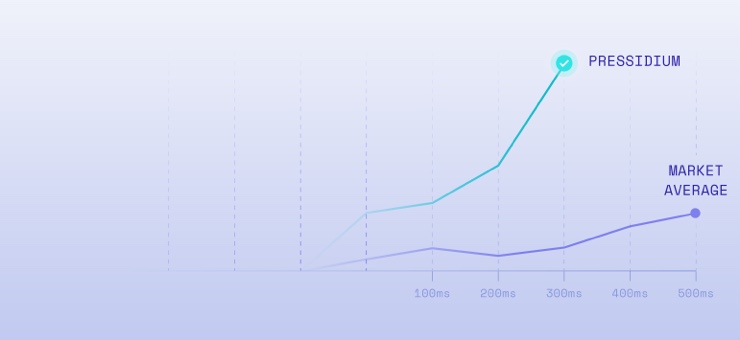
In many ways, building a website has never been easier or cheaper. There has been an explosion in DIY website builders such as Squarespace or Webflow, whilst CMS’s like WordPress have gone from strength to strength. Whether you have a simple blog or want to run a complex eCommerce operation online, there has never been a better time to do so.
The Competition Factor
So, building a website is easy… and gets easier almost every day. What’s got a lot harder (and more expensive) is driving traffic to that website. You could make an argument that there is an inverse relationship between the ease of building and hosting a website to the cost and difficulty of getting eyeballs on your content… and it’s looking like things are only going to continue getting harder.
So, why is this and what can you do about it? In reality, the primary reason for the difficulty in attracting visitors to your site is the fact that there are so many more websites online than there were even a few years ago. According to Siteefy, there are (at the time of writing!), around 1.13 billion websites out there. That’s a staggering number, especially when you consider the first website ever was launched in 1991.
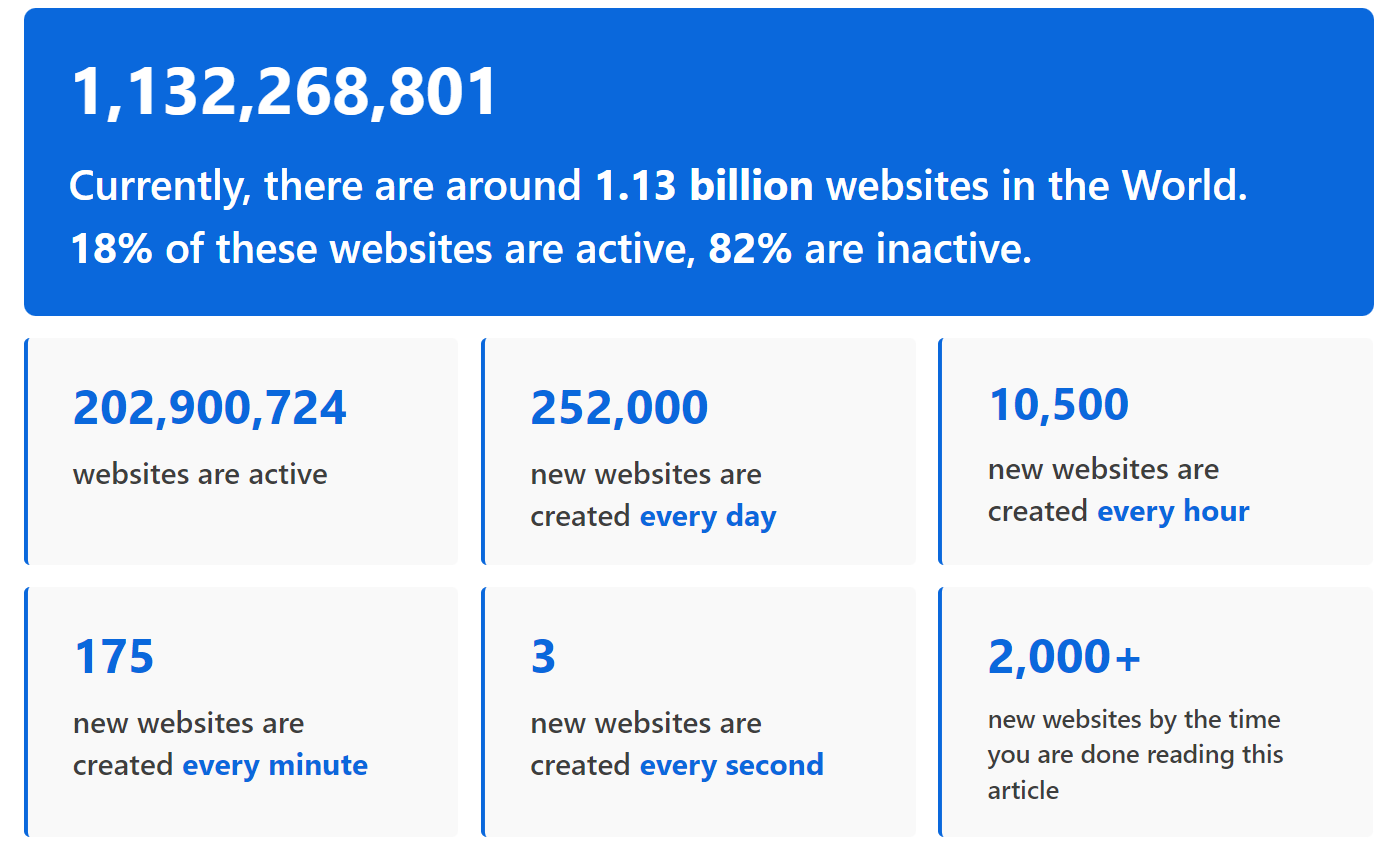
With 3 new websites created every second, it’s perhaps no wonder you might be struggling to get the attention and traffic you deserve!
Hey, I need some Traffic!
There are typically two main ways of getting traffic to a website. The first is via Organic Search. Most web users begin their journey via a search engine (even when they know the URL of the website they want to visit). In order to rank in the SERPs (Search Engine Results Pages), you need high quality content that is relevant to the search being conducted by a user.
Google has perfected the art of search to such an extent that they now dominate the search engine market. There are countless articles, books and video courses on how to dominate in organic search. Making sure your website ranks well in organic search results is often a combination of luck with a healthy dose of hard work and perseverance. It’s certainly not an overnight ‘quick win’ and you’ll need to continue pushing hard in order to succeed.
Very few businesses have the time or expertise to seriously dominate in organic search. This leaves them with the next best option… advertising.
Advertising has always been the primary way that businesses attract new customers. From TV Ads to Billboards, flyers in the mail to radio Ads, advertising is as old as commerce itself.
In today’s world, advertising online is something that most businesses will do. Whilst you might find more niche advertising on certain websites works for your business, in all likelihood, the most obvious choice for your advertising $$’s will be either Google Ads or Facebook Ads. In this article, we’re going to look at the pros and cons of each to help you decide whether Google Ads or Facebook Ads are right for you in 2023.
Let’s get going!
Google Ads
We touched briefly on Organic Search being one possible way you could get traffic to your website. For the most part, any search undertaken on the internet will use Google as the search engine. Because of this, it’s estimated that Google processes a staggering 40,000 search requests every second of every single day.
With such a massive volume, it’s certainly the obvious place to look for your next customer. So, how do Google Ads work then?
How Google Ads Work
When you go to google.com and type in something, you’re presented with a long list of possible websites that might be of interest. In the vast majority of cases, the first 2 or 3 results that you’ll see are Google Ads or Pay per Click (PPC) Ads. These are ‘sponsored’ results, i.e. a business somewhere is willing to pay for the privilege of their website being listed at the top (or near the top) of your search query results. Under these Ads you’ll see the so-called ‘organic’ listings.
By paying (or being willing to pay… more on this next), businesses can leapfrog the competition and get clicks to their website. The alternative? Work hard on their SEO efforts in order that their website gets listed in the organic search results. As you might note however, EVEN if your website is the best of the best from an SEO perspective and Google chooses to promote your website at the top of the organic SERPs, you are more than likely still only going to be listed third or fourth on any particular search. Why? Because Google PPC Ads will almost always take the top few spots on a page.
In reality, this makes paying for Google Ads almost a necessity. It’s very rare for people to go past the first 5 or so search listings. As such, you’d better make sure you essentially rank in the No1 or No2 spot in the organic SERPs for relevant search terms or are using Google Ads if you want to be found. It’s now so critical that, even when a business ranks No1 in the organic SERPs they’ll often pay for a Google Ad to appear regardless, just to make absolutely sure they are the first thing that potential customers eyeballs alight on. Search for the popular theme marketplace Theme Forest and you’ll see something like this:
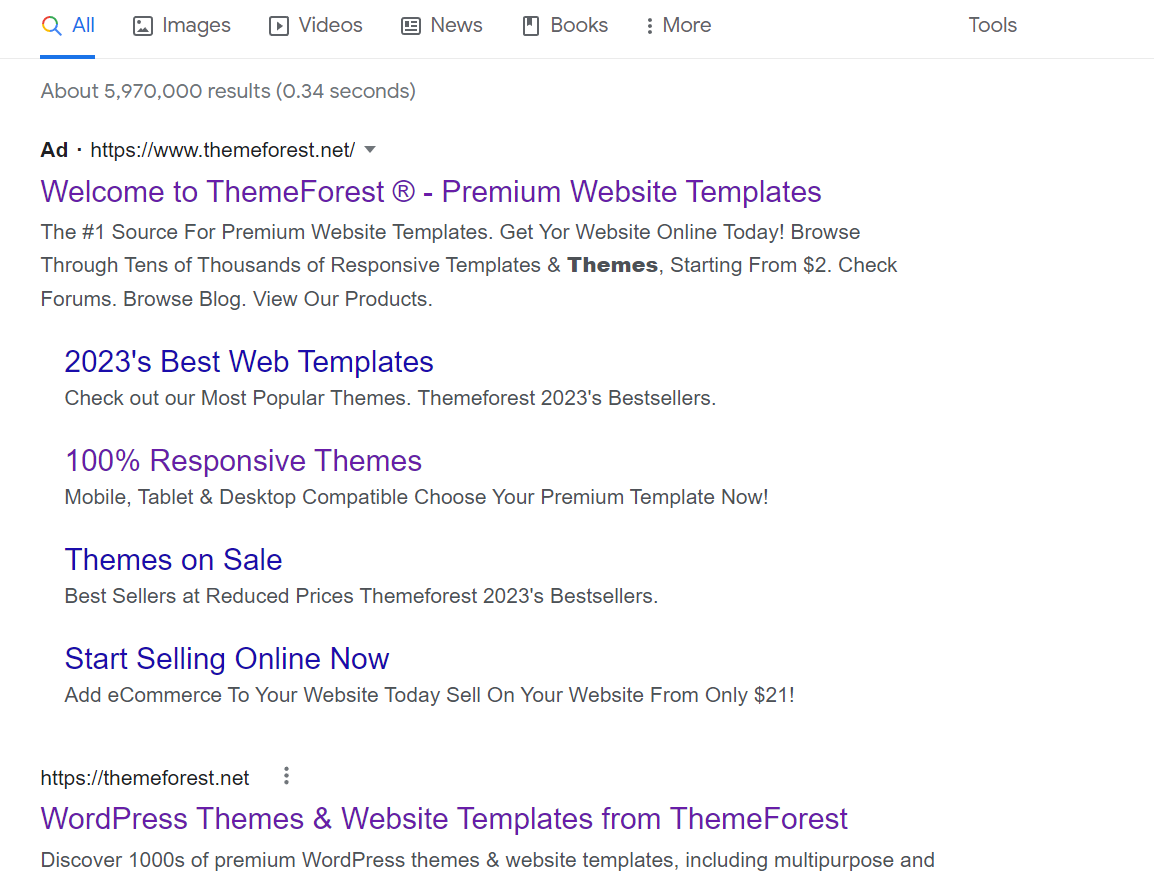
As you can see, Theme Forest rank in the top spot for the organic search ‘theme forest’. Perhaps that’s not entirely surprising given that, if this is what you searched for, then it’s the most obvious result for Google to present. Despite this though, the top spot on the page is dominated by a Google Ad for Theme Forest! They’re clearly not taking any chances and want to ensure that you click onto their site.
So, we’ve seen what Google Ads look like, but how do they work in practice? At the most basic level, it’s super simple actually. Google run their Ads on an auction-type basis. Advertisers (like Theme Forest), provide Google with a list of keywords that, if searched for, they’d like their advert to appear. They then tell Google what content they want displayed (within pre-defined parameters set by Google) and, crucially, how much they’re willing to pay if someone clicks on their Ad.
Every time a search is conducted, Google runs an auction among Google Ad customers… those who bid the most and who are running Ads that are most relevant to the search being conducted, normally get their Ad displayed at the top of the search result. If the searcher clicks on the Ad, Google charges the Advertiser for this click (based on a fee structure agreed when the Ad campaign was setup).
What Google Ads Cost
Google Ads are fairly unique from an advertising perspective in that it doesn’t cost you any money to setup a Google Ad account and to run your Ads. You only actually pay for adverts when someone clicks on them. In theory, due to the truly extensive customization options available to you, this should mean that your advertising budget is used in a highly efficient manner. Why? Well, if your Ads are well optimized, they will only be displayed when someone shows real ‘intent’ with regards to their search. If someone searches for running trainers, odds are fairly high that this is because they want new running trainers. As such, any searcher like this who clicks on your Ad is going to be seriously interested in purchasing from you. If therefore you’ve done a good job with your website and your product offering is desirable, you stand a good chance of making a sale.
Compare this pricing structure to more traditional advertising and it perhaps becomes clear just why Google Ads are so ubiquitous. With ‘normal’ advertising, like TV Ads, you have no idea whether or not those viewing your Ads have any interest at all in your product. You could, as a result, be spending thousands and achieve absolutely nothing.
Try our Award-Winning WordPress Hosting today!

In terms of actual costs, the price per click for Google Ads varies massively. Expect to pay a LOT more per click for Ads that are targeting customers in competitive categories and where there is a lot of competition. For niche products and services however, you’ll pay a lot less. Very roughly, you are looking at a minimum of $1 per click up to $10 or more. It’s therefore absolutely vital that any Ad campaign is carefully optimized to avoid wasted Ad spend.
Wordsteam produce an excellent guide which you can download here which compares costs across industries. It’s well worth a read and gives you a good feel for what kind of budget you might need to allocate to your Google Ad campaigns (the graph below is taken from this guide).
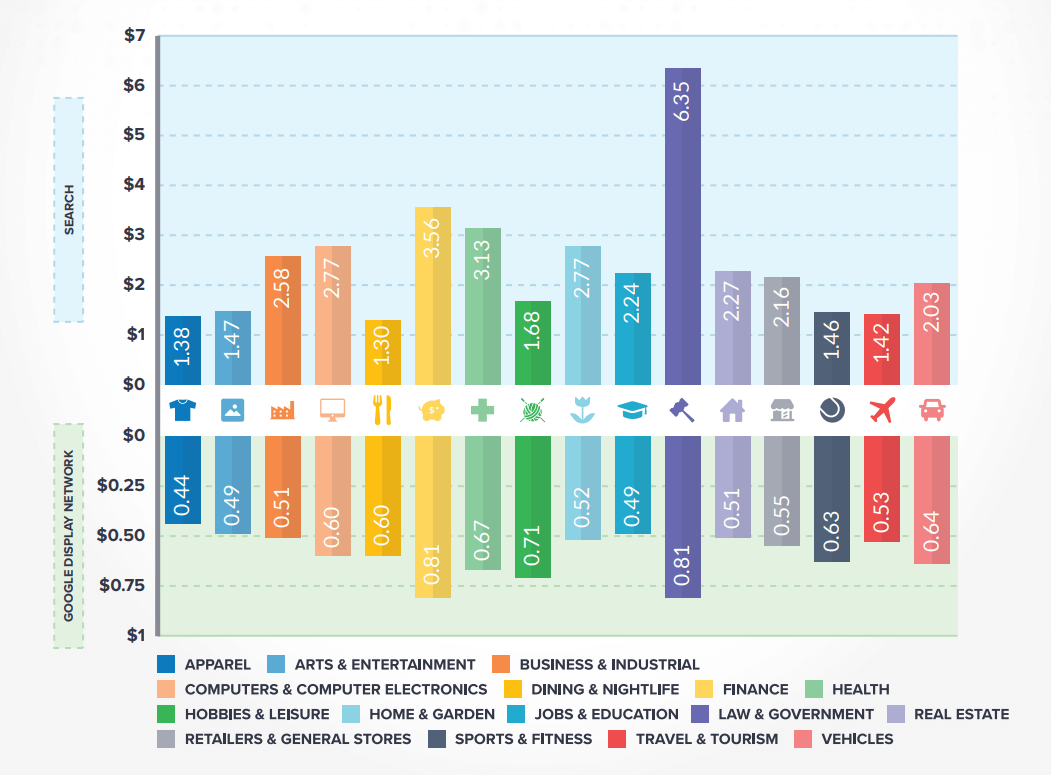
You’ll see that if you’re a lawyer or work in legal services, costs per click are going to be very high.
Setting Up Google Ads
Getting started with Google Ads is relatively straightforward. Simply sign up for an account, login and you’ll be able to choose between an automated Ad setup system or a more hands-on ‘manual’ Ad setup. For what it’s worth, we think that, whilst the hands on approach has quite a steep learning curve, the fine grained control it provides you with is worth the effort over the long run.
This article isn’t the place for a detailed explanation of configuring a Google Ads account. Google provide some excellent and most importantly, up-to-date guides on getting started.
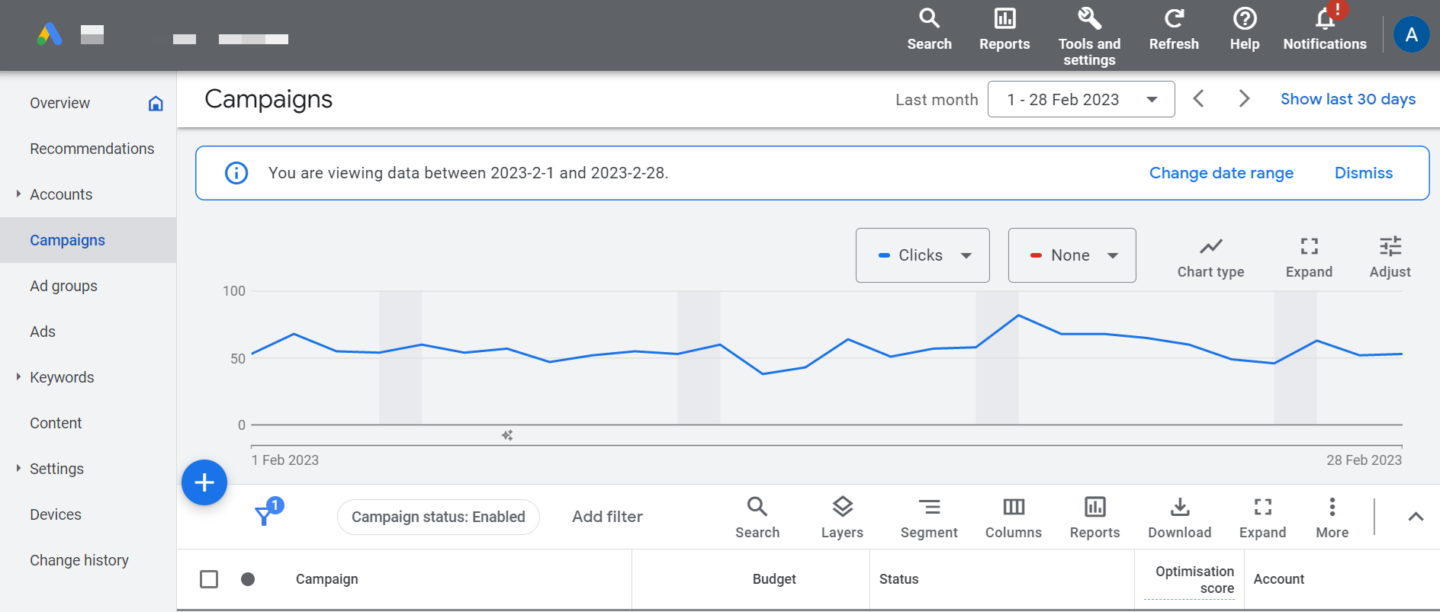
You’ll also be able to access support directly from Google Ads customer services who will work with you to build and launch a campaign. Ultimately it’s very much in their interest for your campaigns to succeed. Everyone is a winner when your Google Ads generate a meaningful return so, expect them to reach out to you at regular intervals to schedule calls during which time they will work to help you optimize your campaign on an ongoing basis.
Facebook Ads
You’d have to have been living on another planet not to have heard of Facebook. Even if you don’t use it (and without doubt, they have been losing market share, particularly among a younger demographic), 2.91 billion users a month still do!
That is a massive amount of potential eyeballs and in turn prospective customers. It’s therefore no wonder that Facebook advertising is a top choice for businesses who are looking for a home for their marketing dollars.
Their advertising platform is agile and, unsurprisingly, well-developed making getting started with FB Ads quick and relatively easy.
How Facebook Ads Work
Facebook is a data machine. Harvesting user data is how they make their money. It’s landed them in hot water with regulators on numerous occasions and their business model highlights just how valuable user data really is.
This data-rich environment combined with vast numbers of users is an advertiser’s mecca. Facebook allows businesses to serve highly targeted adverts that appear in users feeds (like the Ad shown below).
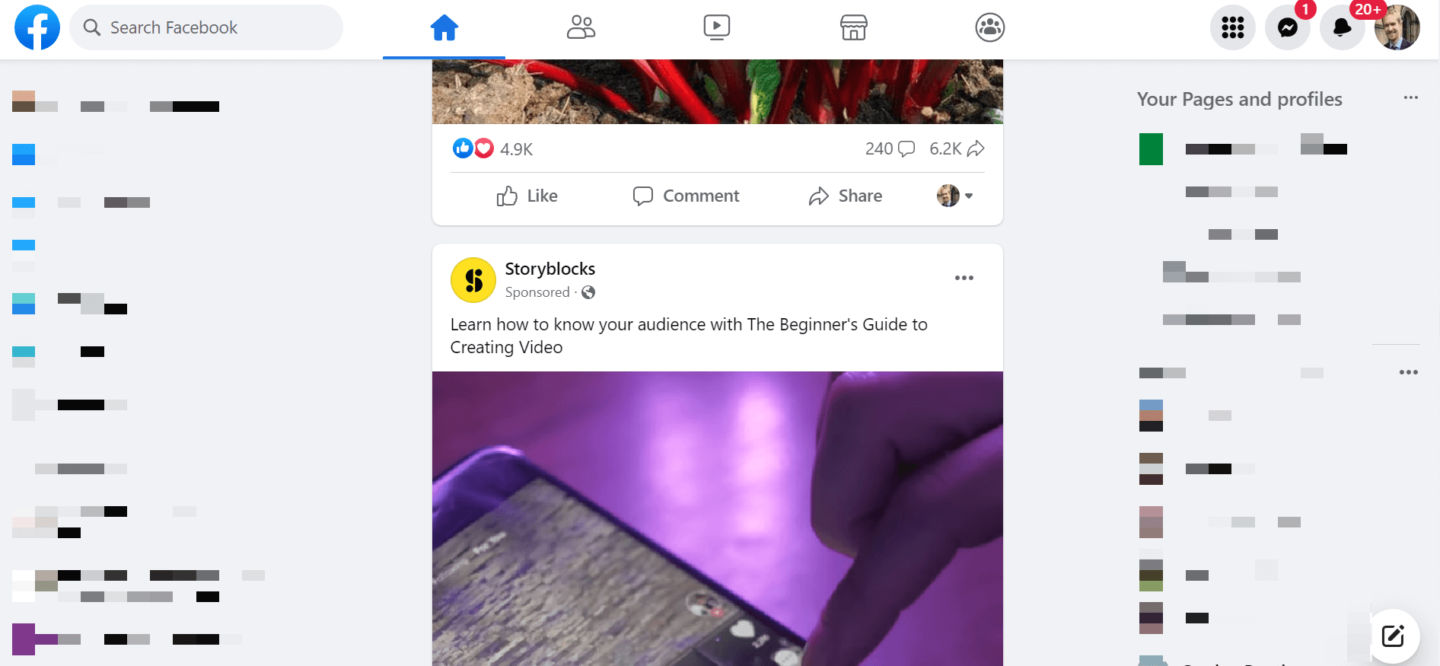
US advertisers spent close to $60 billion on Facebook Ads in 2022. It’s such a massive amount it certainly helps validate the fact that, used, correctly, Facebook Ads are highly effective.
What do Facebook Ads Cost?
The way Facebook Ads are charged for differs somewhat to Google. With Google Ads, you only pay when someone clicks on an Ad. If it appears in the SERPs but no one clicks on it, you don’t pay.
In contrast, Facebook charges Advertisers based on the number of ‘impressions’ or times that an Ad appears in users’ newsfeeds. Like Google, an in-house auction is run that pitches Advertisers against one another based on Ad content, the audience they are targeting and the amount each advertiser is prepared to pay per impression. Like Google, this means prices for Ads can vary significantly. Facebook will provide a range of metrics to help you quantify your costs (for example cost per click, derived from the number of impressions and the clicks achieved). An illustrative cost figure commonly provided is around $12 per 1,000 impressions which equates (based on the ‘success’ of these Ads) to $0.97 per click. Of course, this figure is purely indicative and will vary depending on the Ad quality, the competition and the content.
Setting up Facebook Ads
There are a couple of ways of getting started with Facebook Ads. A lot of how you go about this will depend on the type of page(s) you have on Facebook. For some businesses, you’ll be able to ‘boost’ a post directly from your business Facebook page. This is quick and easy to do… Facebook wants your advertising dollars so tries to make the process relatively seamless.
For those who want to really deep dive their advertising on Facebook, it makes sense to create a Business Manager account. This allows fine-grained control over your Facebook Business pages (and really is a must if you have more than one business page). As part of the Business Manager functionality, you’re able to run sophisticated advertising campaigns which can be carefully targeted. Facebook allow you to set all manner of parameters from the Business Manager Ad interface such as location, age, interest, gender and a whole lot more.
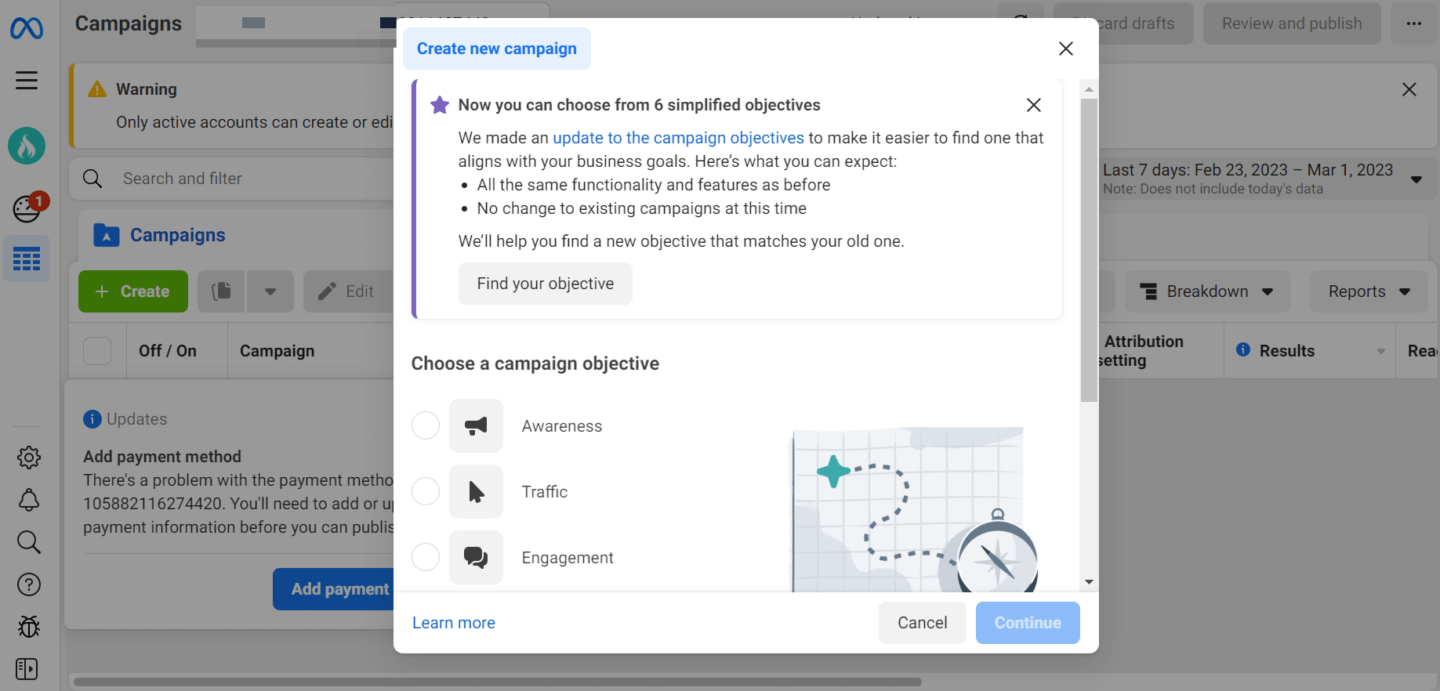
As Ad campaigns run you can see their impact and continually refine various aspects of your ads to hopefully generate the best possible return for your advertising $$.
The Facebook Conundrum
We mentioned earlier that Facebook is essentially a data mining giant. It uses this veritable treasure trove of information about its users in order to help advertisers get their Ads in front of the right audience.
To say this business model has been lucrative would be something of an understatement! However, in 2022, Apple introduced an App Tracking Transparency feature which prompts their users to actively opt-in to tracking mechanisms of the like used by Facebook in order to harvest data about how websites an apps are used. In opting out of this tracking, Facebook (and others) are left out in the dark with far less of an idea about how users are interacting online. This means that they are less able to accurately target these users with Ads. Facebook themselves stated that this would decrease the company’s 2022 sales by about $10 billion.
Since the App Tracking feature was released by Apple, Facebook claim to have developed alternate means by which they can track their users but, clearly this change has reduced the effectiveness of Facebook Ads, which in turn means advertisers are likely to have to spend more to ultimately reach their target audience.
The Primary Difference between Google Ads & Facebook Ads
As you’ll have likely noted, Google Ads and Facebook Ads are similar in many ways. There is one major difference that’s worth emphasizing. Google Ads are displayed in response to specific search queries. If you searched for ‘best running trainers’, you will see adverts relating to trainers. Google is in the business of providing people with content that matches their search queries and adverts are no different. Google will normally only display ones that are broadly relevant to the search term. And that’s great! It gives you the chance to get ahead of the competition and drive (hopefully) customers who are genuinely interested in your product or service to your website.
Facebook Ads however don’t display based on a search term. Instead, they appear in a user’s timeline based on the relevance of the Ad to that particular user. This gives you as a business the opportunity to essentially pitch your product or service to someone who might not have considered buying / using your product or service at that particular point. Using our running trainer example from above, this means you can ‘pitch’ Ads to a demographic that is more likely to be interested in your products in the hope that they then decide to take a look even though buying new running trainers might not have been on their to-do list prior to seeing your Ad.
Which are best? Google Ads or Facebook Ads?
It’s very hard to explicitly state that either Google Ads or Facebook Ads are the best. In reality, they work in quite different ways. Google Ads allow you to target users who express intent in something and help you leapfrog the competition. Facebook Ads allow you to reach people who might not have considered using your service or buying your product but in a manner that is more targeted than traditional media (such as TV).
In reality, if budget allows, it’s worth advertising across both channels. Whichever you use, just remember that you can chew through significant sums of money! Even if you have a large budget, it takes time to optimize advertising on both Google and Facebook. Proceeding with caution until you can demonstrate your advertising budget is being effectively deployed is strongly recommended!
Start Your 14 Day Free Trial
Try our award winning WordPress Hosting!






